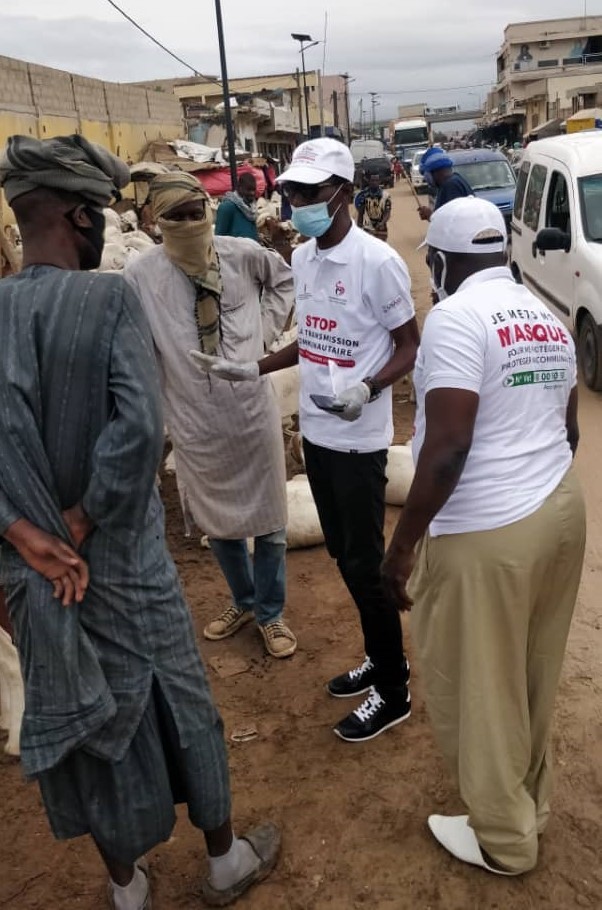Press Release Shim
Speeches Shim

For Immediate Release
The U.S. Government, through the U.S. Agency for International Development (USAID), is supporting the Government of Senegal’s efforts to reduce the spread of
COVID-19 in the run-up to Tabaski, or Feast of the Sacrifice, Senegal’s largest festival. USAID and the Dakar Medical Region have initiated an awareness caravan at 200 sheep sales points in four Dakar departments, targeting 10,000 brokers, sellers, and buyers. Five thousand masks will also be distributed and 3,000 posters promoting barrier gestures will be displayed at points of sale.
The US $7,000 (4 million FCFA), 15-day initiative, which began on July 20, is designed to reduce the risk of transmission as buyers and sellers share tight spaces. It comes at a time when community transmission cases are on the rise and government officials are urging people to respect barrier measures decreed by the health authorities and enforced by the Interior Ministry during the holiday period.
Protecting people preparing for Tabaski is part of a broader package of U.S. Government assistance to help fight the spread of the coronavirus in Senegal. USAID is also providing an additional $3.9 million (2.2 billion FCFA) in new financial support and redirecting more than $2 million (1.1 billion FCFA) from current development and health activities to respond to the outbreak.
The $3.9 million in new funding will continue to bolster the Ministry of Health and Social Action’s (MSAS) coronavirus response work. This includes strengthening communication about the pandemic and its risks; engaging communities in preparedness and response efforts; improving disease prevention and control measures, including water and sanitation practices; supporting the protection of vulnerable groups; enhancing surveillance, case investigation, and case management procedures; and building the capacity of MSAS and national laboratories.
For decades, the United States has been the world's largest contributor to global health security and humanitarian assistance, putting countries like Senegal in a better position to respond to the COVID-19 pandemic. Over the past 20 years in Senegal alone, the United States has invested more than $2.8 billion (1.6 trillion FCFA), including nearly $880 million (500 billion FCFA) in health assistance.

Comment
Make a general inquiry or suggest an improvement.